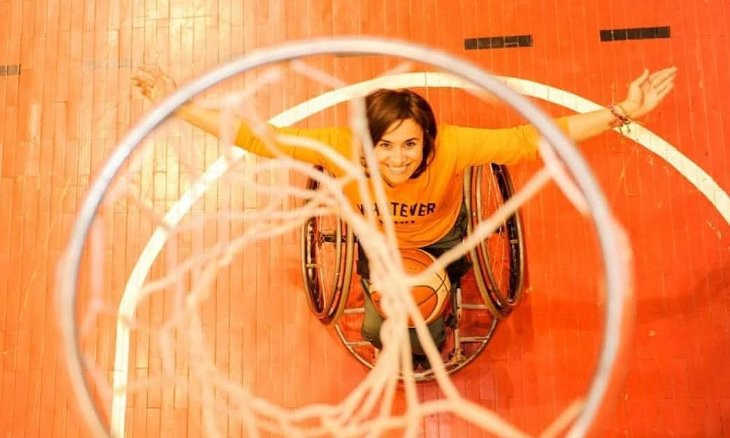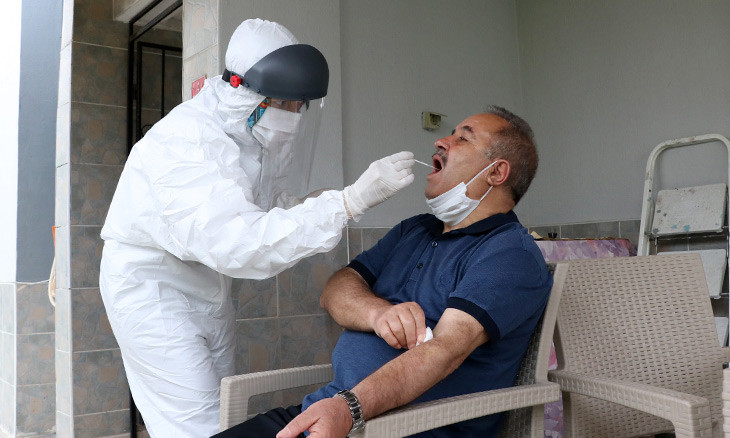People with stutters want others to listen, not guess what they are trying to say
There are over 820,000 people in Turkey who suffer from stuttering. The incidence rate of affliction is four times higher in men than in women. Now, the Stutterers Association of Turkey wants stuttering to be recognized as a disability in Turkey.
Müzeyyen Yüce / DUVAR
Stuttering affects more than 820,000 people in Turkey, and the disease can lead to marginalization, bullying, discrimination, difficulty finding work, and struggles in social life. In the face of this, people with stutters are standing up: in honor of World Stuttering Day, Oct. 22, they want people to better understand stuttering and allow them to “stutter freely.”
Tuba Aksu was a primary school student when she first realized she had a stutter. Many people, like Tuba, first notice the speech impediment when they are children and struggle with it throughout their lives. Aksu’s stuttering appeared at an early age; when she was a child, she realized she struggled reading aloud while her friends could do it quickly and easily. She later learned this was a stutter, and as a result was introverted throughout her education.
“I couldn’t ask the questions I wanted to, and I always remained silent in the debates I wanted to enter; I kept to myself. However, despite everything, I want to be an outspoken student,” she said.
The longer she lived with her stutter, the more Aksu realized how impatient society was with her impediment. People would try to finish her sentences or guess what she was trying to say. But that’s not what she wanted.
“I don't want them to guess what I'm saying, I want them to listen to me,” Aksu said. “For example, when I can't pronounce the numbers when paying a bill, I wish they would say, ‘No problem, I will listen to you,’ rather than holding out a piece of paper and saying, ‘You can write the numbers.’”
Aksu managed to continue her education in spite of her stutter and completed a degree in economics at Kahramanmaraş Sütçü İmam University. She said that while an undergraduate, she was very sensitive to her stutter, but now she’s at peace with it. Now, she wants to go on to complete a doctoral degree.
“I have made peace with the situation with the idea of ‘stuttering freely,’” she said.
It is estimated that approximately 1% of the world’s population - roughly 79 million people - suffer from stuttering. The speech impediment usually appears when children are 2-5 years old and can continue into adult life if left untreated. Without proper therapy, many adults maintain their stutters and have trouble connecting socially and expressing themselves.
Muharrem Karaman, who now works in e-commerce, has struggled with stuttering since he was young. He said that his impediment was worst in high school when he felt he couldn’t engage with other young people because of his speech.
“I didn’t talk to anyone, I didn’t make friends, and I was very withdrawn,” he said. “Even if I had feelings for the opposite sex, I was avoiding them, I couldn’t speak. I decided to hide my stuttering to maintain a better quality of life.”
Then, Karaman found the Stuttering Association. He went to meetings, which made him feel better and able to express himself. It also gave him, and many others, far more information on the impediment.
“We just want to be treated normally […] There is a lack of information on the subject. For example, there are misconceptions that if women are with someone who stutters, the child will also stutter. That’s why the partner might leave, for example. We used to face many more problems when it comes to stuttering but the new generation is more understanding and aware,” Karaman said.
The Stuttering Association is the first and only organization of its kind in Turkey. Ayhan Çağlayan, an expert speech and language therapist who also stutters, founded the organization to provide resources and support to those who stutter in Turkey. He is currently completing his Ph.D. in Language and Speech Therapy at Anadolu University. In founding the organization, he hoped to give stutterers the chance to speak freely.
“Our motto is ‘Stutter Freely,’” he said. “With this motto, we counter the fear of stuttering and raise our voices as loud as possible.”
In order to better integrate those with stutters into everyday life, he said, it is necessary to understand the place of stuttering in the life of the individual and the way the impediment can affect their life.
“Individuals with stutters can get low grades due to difficulties speaking, during oral exams, and when making presentations at school,” Çağlayan said. “Business is also really important. Individuals with stutters are not chosen in interviews, and employers can have negative attitudes […] The individual may often be embarrassed or afraid to speak. They might think that if they noticeably stutter they will be disgraced and people will laugh at them.”
Stuttering needs to be recognized as a disability, Çağlayan said. The World Health Organization (WHO) recognizes it as a handicap, but Turkey does not.
“Stuttering seriously affects an individual's private, social, academic and business life,” he said. “For all these reasons, we want it to be accepted as a disability in our country as it is in America and Europe.”

 State's 'disability-friendly' house challenges Turkish sportswoman in wheelchairDomestic
State's 'disability-friendly' house challenges Turkish sportswoman in wheelchairDomestic Turkish Health Ministry denies responsibility to qualify COVID-19 as work disability for health workersHealth
Turkish Health Ministry denies responsibility to qualify COVID-19 as work disability for health workersHealth